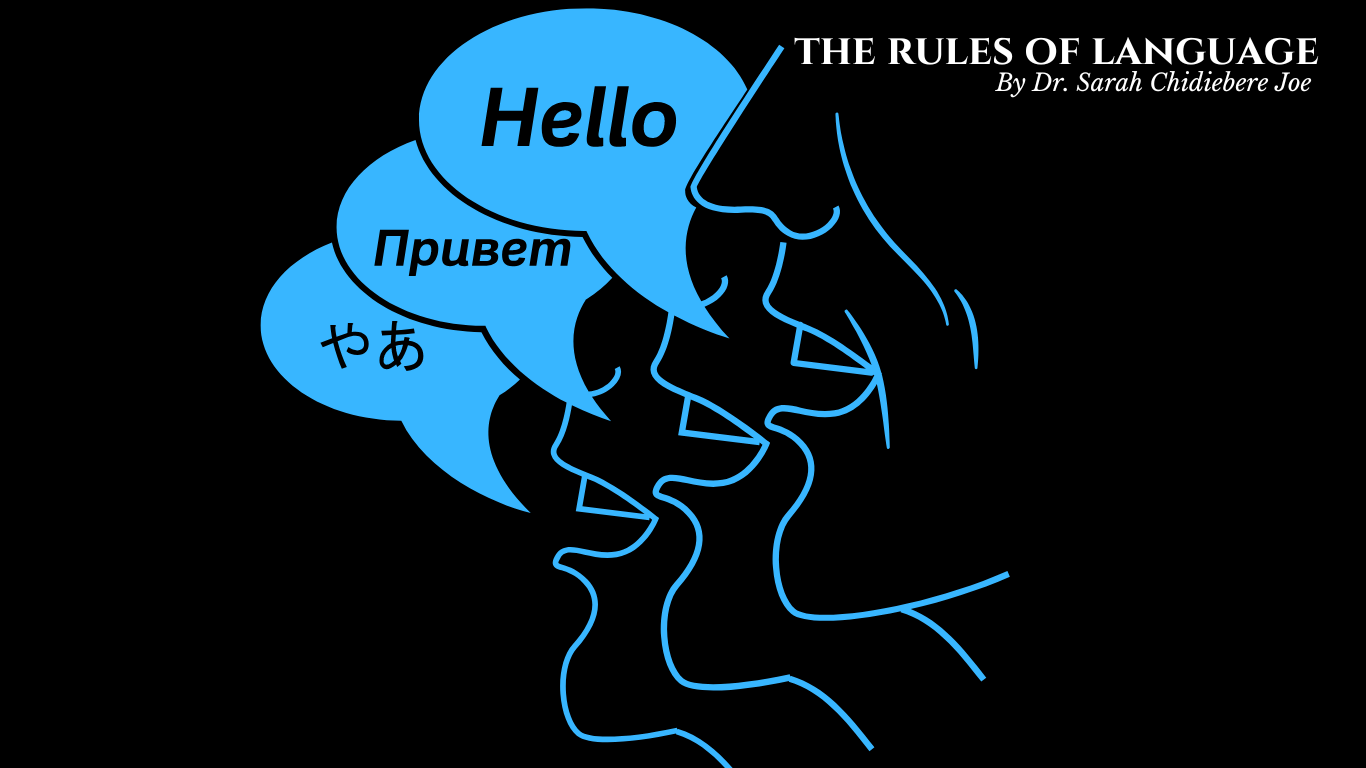By: Theresa Belema Chris-Biriowu
Introduction
At first glance, the topic may seem confusing. However, a simpler way to look at it is to read it out in reverse and if we do that, what it would sound like is “focusing on being female”. This, in my opinion is what is important in today’s world – a digital world – that is inhabited by a great number of girls who are of the digital generation, for whom this day, October 11 is dedicated.
I think that it is a great time to be a girl anywhere in the world, but in Nigeria in particular. I think so because the Nigeria I grew up in and the Nigeria that my mother grew up in is fast fading. In fact, it is only through talking about it to you that you would imagine what it was like to live in Nigeria at that time. So yes! There is no better time to be alive in Nigeria than today. Congratulations to you!
I say ‘congratulations’ because you were born into the age of the internet. This is a fantastic time because what some of you may not have realised is the fact that this age comes with endless possibilities because ‘information is power’ and on the internet, there is no shortage of information and how it was for your parents back then versus how it is for you today is archived there.
Some of the information that you will find in this regard for instance is the fact that it is in your time (only a couple of weeks ago), that the girl child of Rivers State was given the right to partake in the sharing of their family’s property. This means that when I was your age, such a right did not exist and if I had lost my parents at that time, I would have been denied the privilege of getting a share of their assets. Today, however, you can because the new law has given permission to the girl child, just like it has always been for the boy child, to share land and property that belonged to their parents.
Situations like these make you wonder, “why was that even a topic for discussion? If my parents owned something, shouldn’t it go without saying that I get a share as one of their children regardless of whether I’m a boy or girl?” Well, the sad reality is that the simple answer is no. “Why?” You ask? Because of the word ‘patriarchy’. What is patriarchy?
The Patriarchy
There are so many definitions of ‘patriarchy’ out there, but they all point to the same thing. A Spanish Female Rights activist, Alda Facio in 2013 defined patriarchy as thus: ‘a form of political organisation that distributed power unequally between men and women to the detriment of women… the world historical defeat of the female sex’. From this definition, we can see that patriarchy is political, which means that it was created with a particular interest in mind, the interest to favour the male gender. We can also see from the definition that the patriarchy is an unequal distribution of power between men and women, which also means that there is a clear and deliberate plan to treat women unfairly, and lastly, we see that the patriarchy is to the detriment of women, meaning that it is designed to constantly place women at a disadvantaged position.
In a simple Nigerian parlance then, the patriarchy is wahala for who be girl. Even though the idea that birthed the definition of the patriarchy is as old as time itself, dating back to over 6,000 years ago, it still lingers in societies today. How?
The patriarchy is about power and anyone who has tasted power finds it difficult to let go. I mean let’s face it, would you rather be powerful or powerless? I know I’d rather be powerful. So, what happens is that the men who have created and enforced the idea that by virtue of being a boy, a person is superior, would find it extremely difficult to let go of such way of thinking especially since they have seen how wonderfully it has worked out in their favour. Thus, the patriarchy is still very much with us today because there are institutions that have been created over the years to constantly keep this idea alive and reinforce its beliefs. These socio-political institutions have one job: ‘to reproduce and exert male dominance over women’, and their continuous reinforcements are hinged, and thrive on the idea that women need protection because they are biologically the weaker/inferior sex and that men, being the stronger and superior sex, has it as their God-given responsibility to protect the women. So, what are these patriarchal institutions and how do they work?
Patriarchal Institutions
The best way to look at patriarchal institutions is to think of them as smaller systems that function in relation to a larger system. For instance, the smaller systems are the institutions that work together to ensure that the larger system is in good shape. Like how the body works. As a human, you are like a large system, and when all is well within you, you are a healthy human. However, this is only because the smaller systems that make up your body system work well. So, if you were to have a headache, a chest pain, or a stomach ache, for example, it would mean that the head system, the chest system, or the stomach system is not functioning properly and this could affect how you walk, look or behave. This is how institutions work within a society. Nigeria is the larger system and within it are smaller systems, also known as institutions. Hence Nigeria, being a large system, functions as a whole, for better or worse, through the functionalities of other smaller systems within it. So, if there is a grand plan that needs to be effectively carried out in the larger system, the best way to do it will be to make sure that the smaller systems are on board with it. These smaller systems/institutions are:
- The Family: By default, the man is the head of every family, and the major decisions of the household are taken by him. Even the minor decisions that seem not to be of concern to him, are run by him for approval. The family is an ideal institution for male solidarity because the other institutions like the law and religion back up its practices.
- The Religion: The major religions in Nigeria preach and reinforce the idea of male supremacy. It is even inscribed in the Holy books.
- The Government: This institution holds the power to force compliance because it is largely made up of men and they get to decide how the larger system works and what is right and acceptable or wrong and unacceptable.
- Schools: This institution is designed to inculcate from an early age, how the larger system works. So, the idea of the patriarchy is in our textbooks, our subjects, on the lips of our teachers when they teach, train, and correct us. Because we spend a considerable amount of our life in school (from infancy to adulthood), this institution is a powerful tool for patriarchal reinforcements.
- Hospitals: Like the family, the hospital is an institution that enforces male dominance. What happens is that a male figure is expected to sign off on a lot of decisions that concern the female, particularly if she is underaged or married.
- Business Corporations: At business corporations, there are always more males than females. In fact, in some organizations, the males get paid higher than the females for doing the exact job. This shows that the males are regarded as superior to the females.
- The Legal System: Also known as the law, the legal system is designed to interpret the rules and dish out punishment to individuals who go against them. Since this institution is an arm of the government, what it protects are the laws of the land, regardless of who they favour.
- The Media: This institution is one that is armed with the responsibility of reporting to the society within which it operates, how things work. This institution is heavily depended upon for information and the members of society follow it and imbibe what it says, sometimes without questions. Hence, the language and pattern that is chosen by this institution to tell stories are on their own, a weapon to reinforce the patriarchal ideology.
So, it would seem like the odds are holistically against the girl child. Perhaps. But there are great advantages to being a girl child and the girl child has certain indisputable rights. What are these?
Advantages and Rights of the Girl Child
- Girls are the future because we have the ‘reproductive advantage’.
- Girls mature faster and live longer
- Girls are blessed with intense emotions
- Girls are better communicators (studies have shown)
- Section 11 of the Child Right Act, 2003 states: Every child is entitled to respect for the dignity of his person.
- Ministry of Women Affairs
- October 11 – International Day of the Girl Child
Looking at how far we have come and how little in our favour the odds are, I’d say that we are heading in the right direction and that the future is bright. Unfortunately, though, everything that has an advantage has a corresponding disadvantage and I think that it is important to arm ourselves with this knowledge, so that we know how to tackle them. What then are the disadvantages/challenges of being female in Nigeria?
Challenges Facing the Girl Child in Nigeria
- Early marriage
- Early pregnancy
- Violence at home and school
- Poor sanitation and wash facilities
- Insecurity and wars
- Natural disasters
- Disabilities
- Widowhood
The girl child is constantly being reduced to a state of inferiority and worthlessness, but the good news is that it is a globally recognised problem, which is why there have been programmes and schemes that have been designed to empower and constantly educate the girl child on the need to keep the hope alive and be determined to live a better life than their mothers did. This is also the whole point of dedicating an entire day to you, to remind you that you matter, you are not inferior and that the world is yours for the taking!
The Focus – Why is it Important to Stay on Course?
It is of extreme importance to stay on course and not lose focus because there is hope for the girl child and I always say that “the future is female”. An age-old African proverb says: ‘teach a man something and you would have educated one person. Teach a woman something and you would have educated a community”. It is important to stay on course because like I said at the introduction of this speech, that it is a great time to be alive because the world is relatively easier for the girl child as compared to decades ago. While we are aware that we still have a journey ahead of us, we celebrate the fact that the girl child, like her male counterpart can now go to school and be educated, find and hold jobs outside the domestic, vote and be voted for to hold positions of power, dare to dream and achieve those dreams, be a part of the positive change that our society desperately needs, and so on, and more importantly, you have at your finger tips, a world of information, which I believe opens you up to a world of endless possibilities. The girl child by some grand design is capable of learning fast. This means that through an active decision of leveraging on the digital world in which you live, you can self-develop by choosing, in addition to institutionalized education, to master some skills and gain confidence by self-educating. You can also harness the health, social, economic, and legal support systems that are readily available.
Conclusion
The girl child is a symbol of hope for the society. It is a journey, granted, but nothing good comes easy, and taking into consideration the fact that the world and Nigeria in particular is gradually opening up its tentacles to accommodate us and change certain ideals for our benefits, I’d say that we on our part must continue to believe that we matter, that our growth and empowerment means world growth and empowerment, and that the world cannot do without us. Of course, it goes beyond mere words, and we must ‘walk the talk’ but being here today, looking at this arrangement, and the beautiful and promising-looking faces before me, makes me confident that focusing on the female child is not in vain.
Theresa Belema Chris-Biriowu is a Lecturer in the Department of Cinematography and Broadcasting Studies at Rivers State University, Nigeria. This speech was delivered on the occasion of the celebration of the International Day of the Girl Child in Tai Local Government Area, Rivers State, Nigeria.
















I’m an important person and a hope for the society. Thank you ma for those wonderful and inspiring words. I’m proud to be a girl child.
Mrs Belema is an amazing Orator as well as an amazing writer ❤️❤️
????????